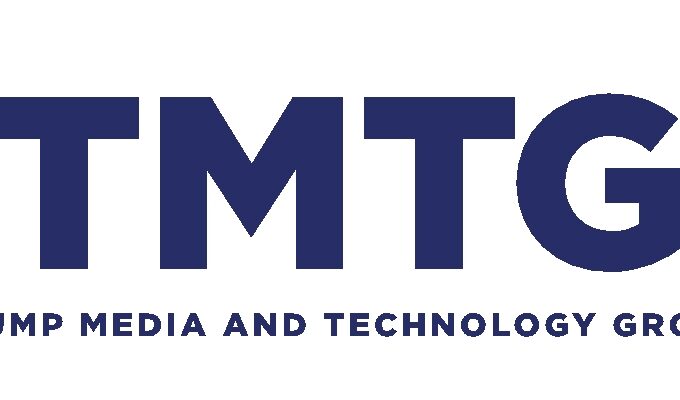
What Lending Club’s falling share price means for the P2P lending sector
By Mike Lobanov for Techcrunch
Lending Club, the largest P2P lending platform in the U.S., has seen its share price drop by more than 50 percent since December 10; the price per share on the NASDAQ Stock Market dropped from $14 to less than $7 (current price per share will vary).
So what is the reason for such a precipitous decline in the share price of the world’s leading P2P lender, and what does it tell us about the P2P lending industry?
The table below shows the company’s financial condition in Q3 2014 (the data available at IPO), and Q3 2015. Because Lending Club reports for Q4 of the preceding year only in February of the subsequent year, only Q3 2014 data were made available to the investors at the date of IPO, so we compared Q3 2014 indices with Q3 2015 indices.
| Change in Lending Club indices from Q3 2014 to Q4 2015: | |||
| Index, $000s | Q3 2014 | Q3 2015 | Change |
| Amount of loans granted through the platform | 1,165,226 | 2,235,646 | 92% |
| Proceeds | 56,064 | 116,276 | 107% |
| Take rate (proceeds/amount of loans granted) | 4.8% | 5.2% | 8% |
As the table above shows, the company’s business volume has doubled over the past year, and its net income has become positive. This is what makes the fintech sector so attractive: Because financial transactions can be conducted completely online, lenders’ net income margin can reach and exceed 30 percent.
In my view, the share price fall has many causes that exist far from the company’s performance indices. Let’s explore the most important of these causes.
Fraud in China
The discovery that Ezubao, one of the largest P2P platforms in China, was in fact a classic Ponzi scheme, with approximately 95 percent of loan applications on the platform being false, has had a significant impact. The actions of the Ezubao management who have been arrested did material damage not only to the platform’s investors (according to the Chinese and American media reports, investors’ losses reached $7.6 billion), but also to the sector in general: In response to the news that Ezubao was a financial pyramid, Lending Club share prices fell 8 percent. Yirendai, a subsidiary of CreditEase and the first public P2P platform in China, suffered a 29 percent fall in share price because of the news.
The risk of fraud is much lower thanks to a much more sophisticated regulatory environment.
However, for companies like Lending Club, Prosper or Funding Circle, the risk of fraud is much lower thanks to a much more sophisticated regulatory environment. Where the SEC and FCA are closely monitoring the activities of P2P lenders, this was not true in Ezubao’s case. Furthermore, in the U.S., the maximum granted loan amount is $35,000 (compared to unlimited on the Ezubao platform), and the likes of Lending Club must maintain up-to-date data on the returns of loans granted through the platform.
Santander left Lending Club
It is possible that when Santander recently announced it was selling around a billion loans purchased through Lending Club, it had a knock-on effect on share price. In reality, the situation in Santander has little to do with the P2P market: The bank had a very large consumer lending portfolio, and the bank incurred substantial losses from them, but these losses were not associated with the loans purchased through Lending Club.
When news broke that JP Morgan had purchased Lending Club loans from Santander, and the transaction was carried out with a premium to par value of the loans, it confirmed that Santander lost no money from Lending Club loans.
It appears that Lending Club loans are OK, but the bad taste still lingers, and Lending Club shares were impaired, despite the fact that nothing bad has happened. Quite the contrary: Lending Club’s credit quality turned out to be better than expected when issuing loans, because the loans issued at par were paid above par.
Several legal companies started their “investigation” against Lending Club
Companies’ share price slump often attracts legal companies in the hope of making money from “investor rights protection.” Once Lending Club’s share price fell significantly below the IPO price, several legal companies immediately declared an investigation on the accuracy of Lending Club’s communications with its investors.
A request from the California Department of Business Oversight regarding a number of platforms, such as Lending Club, Prosper, SoFi, CircleBack Lending, Affirm, Avant, OnDeck Capital, CAN Capital, Kabbage, Funding Circle, Bond Street, PayPal, Square and Fundbox, also serves for these legal companies as an indirect invitation to start an investigation. The reason for the request has not been disclosed, and no action has been taken by the regulator.
Though listening to ex bosses of FSA might be useful in some occasions, I prefer sticking to facts.
In my opinion, such investigations against Lending Club (when even the subject of an investigation is not clear), will carry no long-term threat to the company business, and, in the end, lead nowhere (except for, perhaps, a boost to lawyers’ income). Nevertheless, the news, again, had a significant negative impact on Lending Club share price.
Rise in interest rates for some loan grades
In a recent two-month span, Lending Club raised its loan rates twice: Once caused by a rise in the U.S. Federal Reserve System rate, and once more in order to assess loan risks more precisely. The total raise for December and January made up 0.57 percent on the average among the loan grades (see more detailed in the table below).
| Grade | Nov – 15 | Dec -15 | Jan – 16 | Aggregate Change |
| A | 6.89% | 7% | 6.97% | +0.08% |
| B | 9.82% | 9.93% | 9.88% | +0.06% |
| C | 13.12% | 13.37% | 13.61% | +0.49% |
| D | 16.75% | 17.09% | 17.91% | +1.16% |
| E | 19.1% | 19.87% | 21.07% | +1.97% |
| F | 23.38% | 23.64% | 24.4% | +1.02% |
| G | 27.49% | 27.64% | 28.01% | +0.52% |
| Platform Average | +0.57% |
Analysis of the rise, by Lending Club advisors (largely misunderstood because there was no proper legend to the graph they provided), said defaults on a segment of Lending Club loans had actually accounted for 8 percent and not 4 percent, as expected.
The fact that the purpose of the graph was to show that some of the loans have higher defaults compared to others, while in general Lending Club loans perform on track, was not properly addressed. That caused another 7 percent drop in Lending Club share price, although there is nothing to be afraid of as the loans actually perform as they should. Lending Club issued a clarification about that, but the bad taste lingered.
“Risks” rising
During the last couple of months we’ve seen more and more posts that risks to the economy are growing and the P2P sector will be mostly affected. Even the former chairman of FSA, Adair Turner, warned in an interview about the risks of P2P lending during periods of economic instability. Though listening to ex bosses of FSA might be useful in some occasions, I prefer sticking to facts. Risk profile of P2P loans originated by Lending Club and Prosper are very much similar to risk profile of credit card loans. And as experience tells us (rather than assumptions), investing in P2P loans is profitable even in a recession.
Overall, most fears about the company and the P2P sector are actually farfetched, and in the course of time, and with growing understanding of the sector by an increasing number of investors, these fears will be allayed.
In my opinion, we can expect another year of considerable growth of business volumes and capitalization for such companies as Lending Club, Prosper and other P2P platforms. However, recent events have just led to a perfect storm, impacting the share price of one of the P2P sector’s leading stars.
FEATURED IMAGE: WOWOMNOM/SHUTTERSTOCK (IMAGE HAS BEEN MODIFIED)
The article first appeared in techcrunch.com





